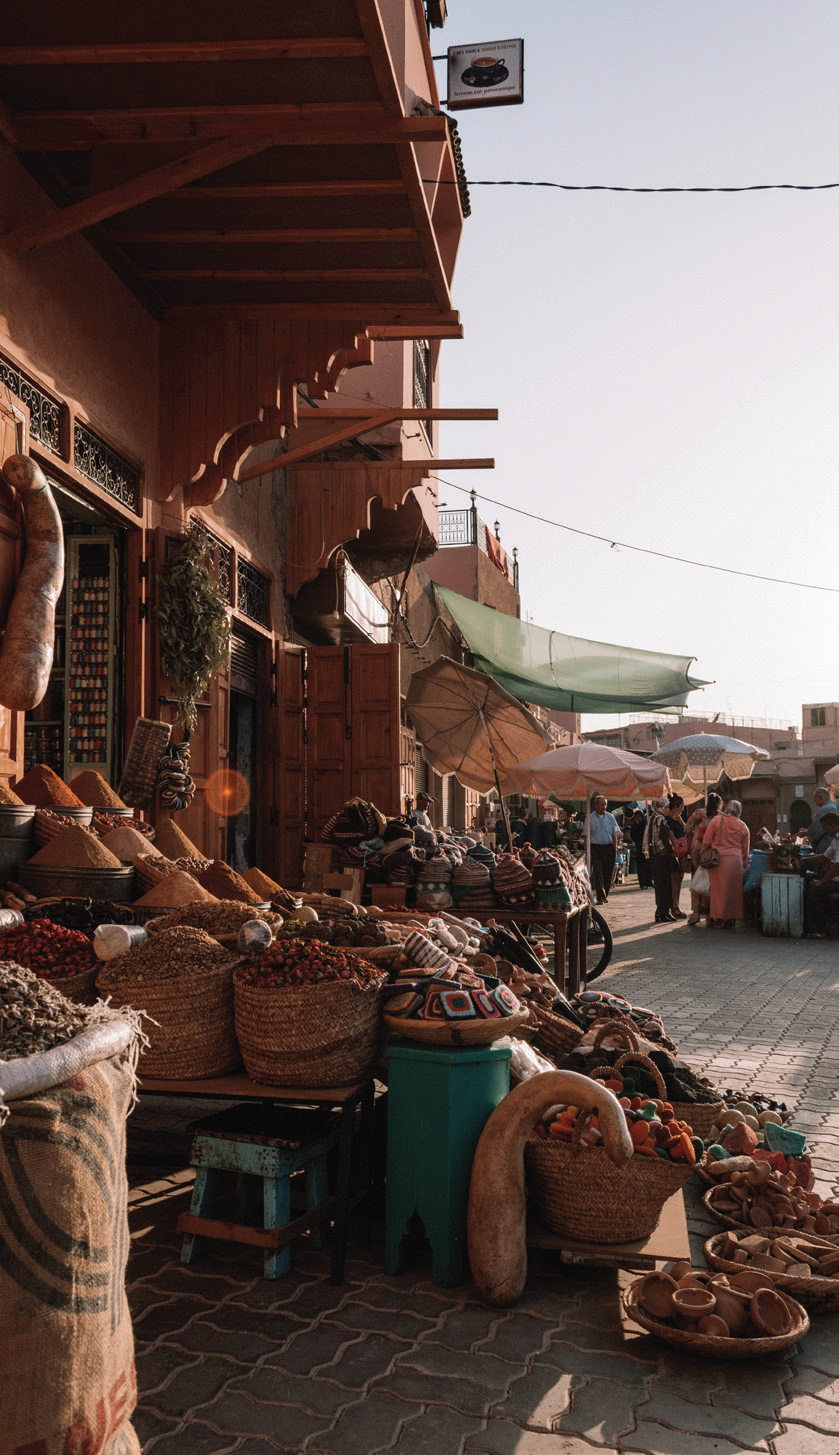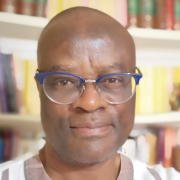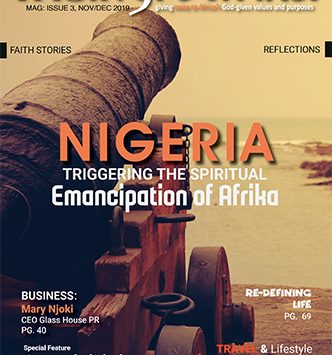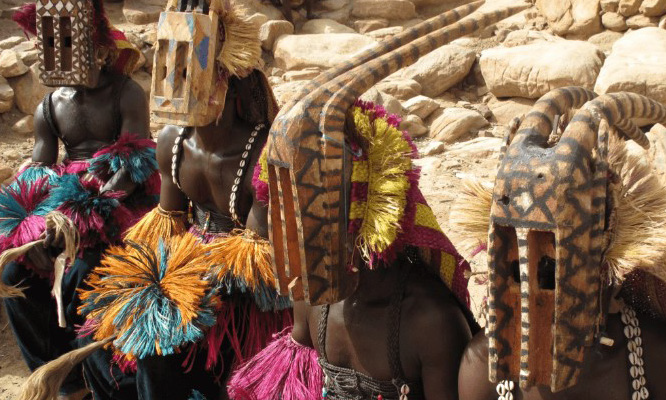
Dr. Bhengu is an Independent Researcher on Afrikan philosophy, Afrikology…
Read Next
Men are shaped by the economy and society they are born into.
Dalton, 1975
A universal civilization requires a universal power, and therefore, for
an African civilization to have universal power, it would have to have
a strong African-oriented economic philosophy, rooted in an African
idiom. We believe that Africa has a relatively strong universal power,
but still economically weak.
(Huntington (1996).
Introduction
Afrikan-oriented Ekonomic System
The ancient Afrikan economic system was widely anchored on the principles of economic democracy. The basic premise of this notion is the study of economic processes in relation to the social and cultural contexts in which they occur. After viewing the principle of self-interest against its historico-cultural background, one considers this link in the African context, and argues that, although they cannot be taken as the sole factor, people’s cultural beliefs and values are crucial for economic development. Economic growth and development need to be a substantiation of a people’s beliefs and values.
This conflicting situation created a need, particularly during the post-apartheid era, to look at a possibility of an alternative economic paradigm, that would be grounded and rooted on African ethics, values and culture. By the way, culture gives a people self-identity and character. It allows them to be in harmony with their physical and spiritual environment, to form the basis for their sense of self-fulfillment and personal peace. It enhances their ability to guide themselves, make their own decisions, and protect their interests. It’s their reference point to the past and their antennae to the future.
In Afrika, profit was not appropriated by a single individual or by corporate owners, as in the West. Nor was it appropriated by the state, as in the East. In indigenous Afrika, profit was shared between the owners and the workers. It is in this sense, therefore, that we pursue humanistic perspectives, which centres upon human person and around human welfare, and we do this explicitly and candidly and without apologies.
As does conventional economics, we stress human agency and autonomy. Yet, unlike mainstream economics, we are not shackled by positive scientism and a nominalist epistemology. We believe in a greatly enriched human nature that takes morality seriously and that is consistent with human dignity. Socially embedded economics seeks unity in the forces of human nature. We have a strong conviction that economic thinking and discourse cannot be carried out in an ethical vacuum, and that it is this explicit ethical foundation which is so distinctive for socially embedded economics as an alternative to ordinary economics.
It is our mission to expose errors in the mainstream economics and to offer a general framework with which to rebuild economics, including the theory of economic policy, on sounder ground. We must realize that what is called‘economics’, as it is taught in our universities, is simply a reflection of the economic experiences of the White community, which in itself is an extension of the economic experiences of developed Western countries. The challenge for us in Africa, is to develop a new economics, which shall be a reflection of the economic experiences of the overwhelming majority of society, the African people… Our economics must begin with an accurate knowledge of the situation and needs of the overwhelming majority of Africans in rural and semi rural areas, and in the townships of urban areas.
Therefore, Afrikonomics is the institutional feature of post-independent African governments to deliver to the masses on one side, with the emergence of an African
cabal in politics and business whose main concern is the accumulation of wealth on the other. It is a result of the fact that the African has not, in the past, had the opportunity to accumulate wealth and will therefore use the political platform as his means to wealth while really not motivated by his promise to serve the interests of the majority. Having come from poverty to power, he us shackled by his past and releases himself through the accumulation of wealth that he hardly needs but must have at all costs.
Western Capitalism & Globalisation
The global capitalist system did not, and does not, serve Africa well. The subordination of Africa to global capitalism has to be stopped. Globalisation has adverse ramifications for the countries of the South, with the poorest being the most badly affected.
This evolution of globalization and its negative implications for Africa was not a new one for Nyerere. He warned that “…since global capitalism had so little that was positive to offer Africa, he added immediately: You have to be self-reliant”. He further warned that the leadership of the future will have to devise, try to carry out policies of maximum national self-reliance and maximum collective self-reliance. They have no other choice.
Immanuel Wallerstein, (Historical Capitalism and Capitalist Civilisation, Verso Press, London, 2003) argues that individualism, which is one of the values of capitalism,
encourages the race of all against all in a particularly virulent fashion, since it legitimises this race for all of mankind. `It is thereby limitless. So individualism is the spur of energy and initiative, and it is also the limitless struggle of all against all – whereby both universalism and racism/sexism emerge.
Africa does not benefit from Western capitalism because it has failed to emulate the West in how to produce capital, and this is a fact that has been proven beyond any doubt. The idea that all nations should appropriate Western capitalism through emulation hinges also on the assumption that it is only economic system that humanity has ever known. An evolutionary approach to the appropriation of Western capitalism is also based on the assumption of the ahistorical nature of such an economic system. Western capitalism was not necessarily the result of natural processes of economic evolution.
The capitalism which took root in Africa was a form of stunted capitalism, which generated and reproduced a stunted politics both in the marginalised African society and in its colonial leadership. This situation resulted into an institutionalised greed. Greed has now been institutionalised through the widespread adoption of laissez-faire neo-liberal policies in Africa, including South Africa.
This situation led to the co-existence of two economic systems, i.e. the first economy and second economy, and Murove (2008, 86) sees this dichotomy like this:
The African economic context has two economic systems that seem to exist side by side. We have a modern economic system that is urban and another that is rural or traditional. The modern economy is Western-oriented, while the rural economy works according to African traditional values. Although Western capitalism has been in Africa for a long time, these dual economies have remained separate From the time of the discovery of diamonds in 1869 and gold in 1886, the South African story has been thoroughly capitalist, with the commitment to elitist wealth accumulation wearing the cloak of first British imperialism, then Afrikaner nationalism and now black economic empowerment.
The rise of the educated black middle class, against a background of growing poverty, began well before the political dispensation in 1994 in South Africa. While the mean income of the lowest 40 percent of African households declined by almost 40 percent between 1970 and 1991, the mean income of the richest 20 percent (representing 5.6 million people) increased by 40 percent. Today more than one in four of the richest 20 percent of households in the land are African, compared to one in 10 in 1975.
Like middle class people everywhere, the new black elite in South Africa have the education but not the inclination, yet, to question the assumptions of capitalism
that underpin their well-being and the poverty of their ‘less fortunate’ compatriots. This may be changed as it is borne in on middle class blacks and whites that there really is no future for the capitalism on which their present lifestyle depends and that an attractive, sustainable future for their children and grandchildren is possible along the way of interest- ree credits linked to social merits. We need to bear in mind how the racialist mindset was allowed and cultivated only for as long as it was good for capital accumulation.
While racialism was still good for business, the thought that blacks and whites could get along and work perfectly well together as political equals was dismissed out of hand as an impossible dream. But it became obvious through the 1980s and 90s that modern capitalism needs market-attached blacks and whites to work, bank-borrowing and consume equally well, however, still little real concern for the growing number of people who do not have access to the market.
In pre-colonial Afrika, the individual’s freedom was equally subject to the overall community interest. There existed social sanctions, which were meant to reign in untethered individual freedom, and I will explain this more below.
The Problem Statement
As explained above, through Western capitalism (which embodies Western culture), African ethics and African economic relations (which embody African culture) were disrupted and put almost into non-existence, because Western capitalism tends to be a science of self interest, of how to best accommodate individual behaviour by means of markets and the commodification of human relations.
Much of it still reflects the particular philosophical tradition of British culture inaugurated by Hume and his followers. There is no room for a logic of human values and rationally founded ethics. Human aspirations are watered down to shopping behaviour and channelled into stale consumerism.
The result of this encounter between the two cultures (Africa and West), is that the disadvantaged culture, which is African culture, could not assimilate totally the dominant Western culture. This has led to the disadvantagedness and dislocation of African culture, which led Africans to struggle and fight for their cultural renaissance and liberation, within the context of economics, whilst the dominant culture, pushes forward with its existent dominant cultural way of doing things. The following are effects of such encounter:
(1) The Africans/Third World countries become disadvantaged, (2) Western capitalism gets stunted and fails to thrive in an African setting/Third World situations, and (3) The global economic order is, thus, not in balance. According to Adu Boahen (“African Perspectives on Colonialism”, 1987; 101-102), …the colonial system led to the delay of industrial and technological development in Africa. One of the typical features of the colonial political economy was the total neglect of industrialization and of the processing of locally produced raw materials and agricultural products in the colonies. It should not be forgotten that before the colonial period, Africans were producing their own building materials, their pottery and crockery, their soap, breads, iron, tools, and especially cloth; above all, they were producing the gold that was exported to Europe and the Mediteranean world. Had the traditional production and techniques in all these areas been modernized and had industrialization been promoted, African industrial and technological development would have commenced much earlier than it did. But they were not. Instead, preexisting industries were almost all eradicated by the importation of cheap and even better substitutes from Europe and India, while Africans were driven out of the mining industry as it became an exclusive preserve of Europeans. This neglect of industrialization, destruction of the existing industries and handicrafts in Africa, and elimination of Africans from the mining field further explain Africa’s present technological backwardness.
Prof. Herbert Vilakazi (2001), writing in the New Agenda journal (a South African Journal of Social and Economic Policy) of 2001 had this to say: “We must realize that what is called ‘economics’, as it is taught in our universities, is simply a reflection of the economic experiences of the White community, which in itself is an extension of the economic experiences of developed Western countries. The challenge for us in Africa, is to develop a new economics, which shall be a reflection of the economic experiences of the overwhelming majority of society, the African people…Our economics must begin with an accurate knowledge of the situation and needs of the overwhelming majority of Africans in rural and semi rural areas, and in the townships of urban areas”. It is in this sense, that the Afrikonomics Theory explores ways and means of creating an economic-cultural synergy, which would achieve an integral economy, that would, in turn, create an integral and holistic human person.
When Western capitalism was introduced in Africa, which was part of the colonisation process, Africans failed to reconcile their culture with Western capitalism, hence capitalism failed or still fails to thrive in an African setting. A significant percentage of the African population purports to live under the value systems of Western capitalism, whilst many Africans still feel that where they belong is in the traditional communal setting that is mostly dominated by traditional values. The traditional African economic world remains foreign to the Western, urban economy. These two worlds have remained separate because their values are not compatible. The emphasis on community that has dominated traditional community-based economic relations is contradictory to modern economic relations built on Western individualistic values.
Whilst African traditional economic relations emphasise communal well-being and individual belongings, economic relations that are based on Western capitalism
emphasise individual autonomy, the individual pursuit for personal gain and the primacy of rational choice. African communitarian values are making it impossible for modern capitalism to be integrated into traditional African life. Therefore, Western capitalism disrupted and distorted the African normal way of life. An African had to learn to be a white person, i.e. imbibing the Western values and also keeps his African normal life – a clash of values, were and still are, inevitable. As a result it is an African who suffers because capitalism was not negotiated but was forced through his throat, as part of colonization. It is, again, in this sense that capitalism is either replaced or adapted to the African cultural milieu. That is why when delivering his paper entitled “The End of African Socialism” in May 1, 1990, at The Heritage Foundation in the USA, Ayittey, posed this question: “Why impose on black Africans an economic system which is alien to their culture? True, African peasants are communalistic and socialistic in the sense that they pool their resources together to build and care about their neighbors and family members”. This suggests that what is central in the whole debate is the importance and essence of culture. With Africans, culture is about how the past must interact with
the future. It is about how social values are transmitted and individuals are made to be part of a society.
Subscribe now for updates from Msingi Afrika Magazine!
Receive notifications about new issues, products and offers.
What's Your Reaction?
 PIN IT
PIN ITDr. Bhengu is an Independent Researcher on Afrikan philosophy, Afrikology and Egyptology. He is an established and experienced author, self-publisher and managing director of Phindela Publishing Group & Editor-in-Chief of INQABA Journal, a quarterly publication that specializes on Afrikology. He describes himself as an Afrikan of Nguni (Zulu) extraction, but then a global citizen. Black, but being in total fusion with the world, in sympathetic affinity with the Earth... “I am black not because of a curse, but because my skin has been able to capture all cosmic eluvia. I am truly a drop of the sun under the earth.” He says.



















